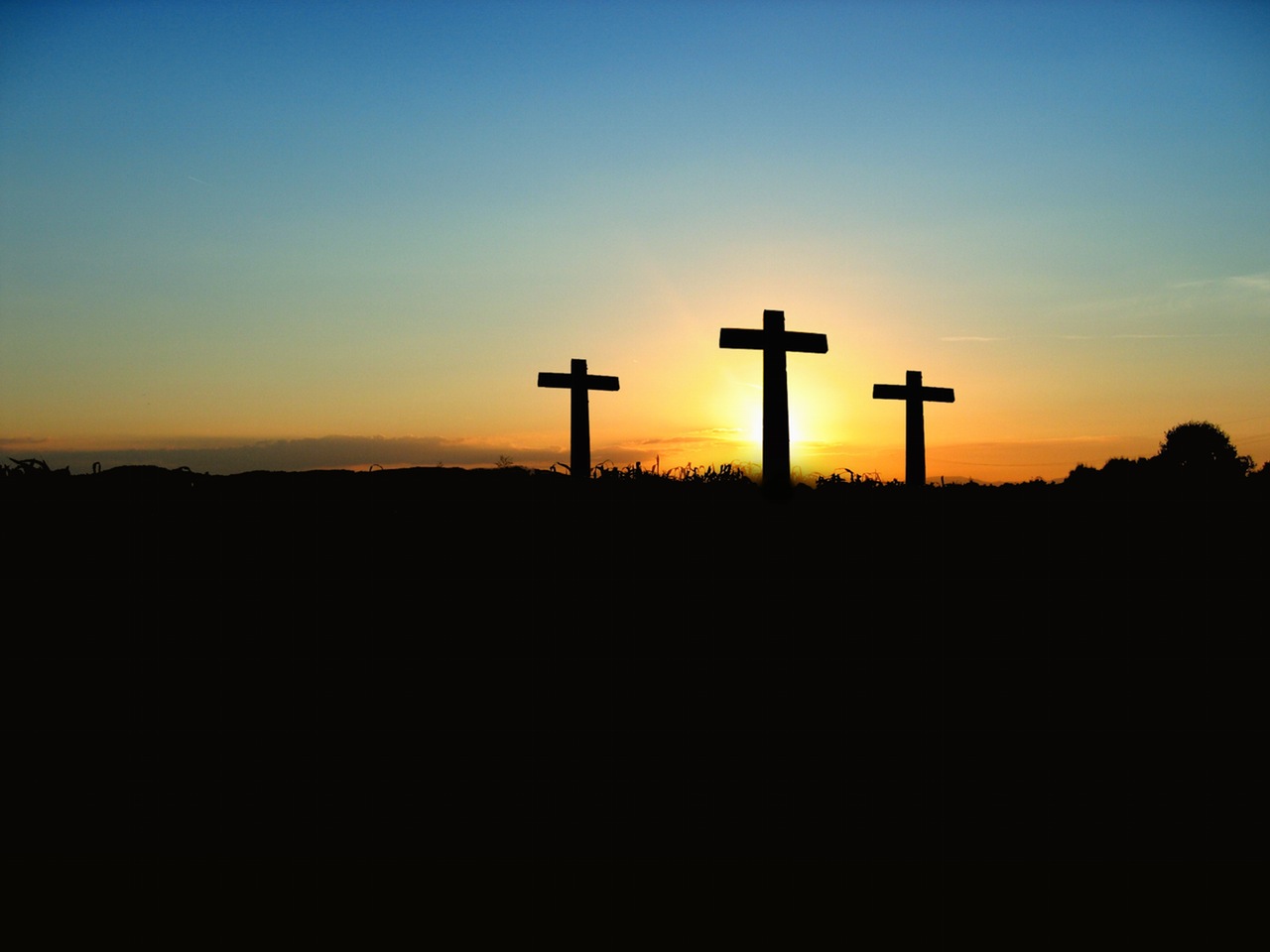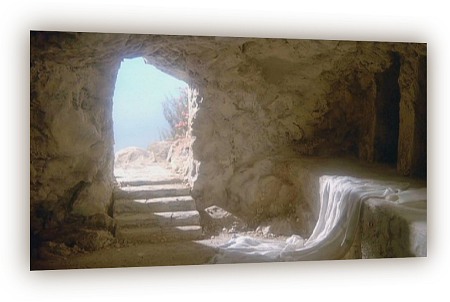 Would Jesus’ teachings fall under the modern day usage of the term Islamophobic?
Would Jesus’ teachings fall under the modern day usage of the term Islamophobic?
Let’s begin our examination of this by looking at how this term was recently used in a Senate confirmation hearing. On June 7, 2017, Senator Bernie Sanders accused Russell Vought, President Trump’s nominee to be Deputy Director of the White House Office of Management and Budget, of being “Islamophobic” and because of that unfit for office. He concluded his questioning with this remark, “This nominee is really not someone who this country is supposed to be about.”
The cause of the Senator’s angst was an article Russell Vought wrote in defense of Wheaton College pertaining to their firing of a professor who claimed there was no difference between Allah and the God of the Bible. Here is what he wrote in a publication called Resurgent, “Muslims do not simply have a deficient theology. They do not know God because they have rejected Jesus Christ, His Son, and they stand condemned.” Sanders considered Vought to be Islamophobic based on this statement.
Would Jesus agree with Russell Vought or with Senator Sanders? Let’s put it to the test.
What Did Jesus Claim about Himself?
Jesus asserted that He is the only path of salvation. In John 14:6 he says, “I am the way, and the truth, and the life. No one comes to the Father except through me.” Jesus’ claim here is unmistakable. He stated that no one can be saved; no one can come to the Father apart from Him. Jesus clearly claimed to be the only path of salvation available to all men and women.
So far, Jesus would agree with Vought’s statement. Since Muslims reject Him, they cannot know God or receive eternal life. According to the Quran, Jesus is a great prophet, but certainly not God nor the way of salvation. Muslims place Muhammed above Jesus and worship Allah, an ancient moon god, rather than the true and living God, whom Jesus revealed at His coming. They have a long history of opposing both Jesus and His followers, to say the least.
Jesus claimed to be God in the flesh and His resurrection forever verifies all His claims, including this one.
In John 10:30 Jesus also said this, “I and the Father are one.” The Jews who heard this immediately took up rocks to stone Him; they recognized His words as a claim to be God, one and the same with the Lord God of the Old Testament, the creator of all things. Jesus claimed to be God in the flesh and His resurrection forever verifies all His claims, including this one.
Russell Vought’s statement so far stands in agreement with Jesus. Muslims do not know the only true and living God since they reject Him in the person of the Lord Jesus Christ. Because Jesus is one with God the Father, one cannot reject Jesus and at the same time claim to know God. That’s simply impossible. You cannot reject God and at the same time claim to know God.
Are Those Who Reject Jesus Condemned?
The other part of Vought’s statement, the one that perhaps caused Senator Sanders the most trouble, was that Muslims who reject Jesus “stand condemned.” Would Jesus agree with this assertion?
Yes. Look at what Jesus said as recorded in John 3:17-18, “For God did not send his Son into the world to condemn the world, but in order that the world might be saved through him. Whoever believes in him is not condemned, but whoever does not believe is condemned already, because he has not believed in the name of the only Son of God.” Jesus here boldly asserts that those who do not believe in Him are already condemned by virtue of their rejection of Him.
Vought’s statements regarding Islam align perfectly with the teachings of Christ; those who reject the Savior are “condemned already” and we have already established that Muslims do indeed reject Him.
Does this make the teachings of Jesus Islamophobic? Perhaps in the modern day usage of the term but in reality, absolutely not!!
Jesus died a cruel death on the cross; He shed his very blood so that all people, including the followers of Islam, might have eternal life. Jesus gave His life so that all people could find life and salvation by believing in Him (see John 1:12).
In John 15:13 Jesus said this, “Greater love has no one than this, that someone would lay down his life for his friends.” Jesus does not fear or hate Muslims; he died so that they might find eternal life in Him. He loves Muslims so much that He shed His own blood for them.
Since 2001, millions of Muslims have turned to Jesus and become heirs of eternal life. Some estimate there may be as many as a million Christian converts in Iran alone. I recently read that Muslims in Indonesia are currently turning to Jesus in record numbers. The life and hope they could not find in Islam they now forever possess in Jesus. I rejoice that so many former Muslims are now brothers and sisters in Christ.
We all equally need a Savior; there is no distinction. We all need Jesus.
In essence, this is not a matter regarding any one religion or race or any other grouping of people. Everyone, without exception, needs the life that only Jesus offers. Apart from Him, no one can know God or find eternal life. We all equally need a Savior; there is no distinction. We all need Jesus.
I truly pray that Senator Sanders someday turns to Jesus and finds the joy, peace, and eternal life that can only be found through putting one’s faith in the Savior. The senator has every right to reject Vought’s nomination, but sadly his words reflect more of a rejection of Jesus than of the nominee.



 Since gravity is true, regardless of our ability to jump we always come back to the ground (I return a bit quicker than most since I can't jump very high). If we drop something, it goes down rather than up. If we trip, we fall unless we regain our balance in time. Since gravity exists, certain things naturally flow from that.
Since gravity is true, regardless of our ability to jump we always come back to the ground (I return a bit quicker than most since I can't jump very high). If we drop something, it goes down rather than up. If we trip, we fall unless we regain our balance in time. Since gravity exists, certain things naturally flow from that.
 Do you remember waiting for a train to arrive? For me, my most vivid memory of this is anticipating the arrival of a commuter train at the Foggy Bottom Metro Station in Washington, D.C. Besides the electronic clock that counted down the minutes until its arrival, I often watched for other signs of the train’s imminent arrival.
Do you remember waiting for a train to arrive? For me, my most vivid memory of this is anticipating the arrival of a commuter train at the Foggy Bottom Metro Station in Washington, D.C. Besides the electronic clock that counted down the minutes until its arrival, I often watched for other signs of the train’s imminent arrival. No, I am not suggesting that we start building ships or that we rush to the Ark Encounter in northern Kentucky hoping that the recreation of Noah’s ark will actually float. I am referring to Jesus’ words in Matthew 24 where He said this, “For as were the days of Noah, so will be the coming of the Son of Man.”
No, I am not suggesting that we start building ships or that we rush to the Ark Encounter in northern Kentucky hoping that the recreation of Noah’s ark will actually float. I am referring to Jesus’ words in Matthew 24 where He said this, “For as were the days of Noah, so will be the coming of the Son of Man.” Recently, we went with friends to see the movie In Our Hands: Battle for Jerusalem. The movie showed the background to and the fight for the city during the Six Day Way in 1967. Perhaps the most striking aspect of the movie was the joy of the soldiers upon reaching the ancient outer wall of the temple.
Recently, we went with friends to see the movie In Our Hands: Battle for Jerusalem. The movie showed the background to and the fight for the city during the Six Day Way in 1967. Perhaps the most striking aspect of the movie was the joy of the soldiers upon reaching the ancient outer wall of the temple. As I read Paul David Tripp’s devotion today about “eternity amnesia,” I was struck by how well his comments help us understand the madness we see around us in the world today and also, sadly, to some degree in the church.
As I read Paul David Tripp’s devotion today about “eternity amnesia,” I was struck by how well his comments help us understand the madness we see around us in the world today and also, sadly, to some degree in the church. Irma Jean Wessels was a friend of my mom while I was growing up in Rockford, Illinois. I had not thought of her for many years until last Sunday when our pastor read Luke 18:28-30 as a part of his sermon. There, in response to Peter pointing out his sacrifice in following the Savior, Jesus responded with these words, “Truly, I say to you, there is no one who has left house or wife or brothers or parents or children, for the sake of the kingdom of God, who will not receive many times more in this time, and in the age to come eternal life.”
Irma Jean Wessels was a friend of my mom while I was growing up in Rockford, Illinois. I had not thought of her for many years until last Sunday when our pastor read Luke 18:28-30 as a part of his sermon. There, in response to Peter pointing out his sacrifice in following the Savior, Jesus responded with these words, “Truly, I say to you, there is no one who has left house or wife or brothers or parents or children, for the sake of the kingdom of God, who will not receive many times more in this time, and in the age to come eternal life.” As I sat in class the first day, I begin to realize it was not what I expected. I should have dropped the course and signed up for another one. But I delayed in deciding upon an alternative and ended up stuck in the class.
As I sat in class the first day, I begin to realize it was not what I expected. I should have dropped the course and signed up for another one. But I delayed in deciding upon an alternative and ended up stuck in the class. Of all the late night comedians I watched over the years, I liked Johnny Carson the best. I liked his humor and still remember several of his skits.
Of all the late night comedians I watched over the years, I liked Johnny Carson the best. I liked his humor and still remember several of his skits. Why are our churches so silent on the matter of Jesus’ return? Jan Markell, in a recent article, noted that 90% of pastors do not preach or teach about the return of our King, the Lord Jesus.
Why are our churches so silent on the matter of Jesus’ return? Jan Markell, in a recent article, noted that 90% of pastors do not preach or teach about the return of our King, the Lord Jesus. In 1 Corinthians 10:6, Paul says that the sins of the Israelites in the wilderness happened as an “example” that we might not follow in their footsteps. On the other hand, we find many positive models of faith in the Old Testament we can follow such as some men from the tribe of Issachar.
In 1 Corinthians 10:6, Paul says that the sins of the Israelites in the wilderness happened as an “example” that we might not follow in their footsteps. On the other hand, we find many positive models of faith in the Old Testament we can follow such as some men from the tribe of Issachar. Life in this world so easily takes our eyes off the prize that awaits us in eternity. It’s so easy to become focused on our daily routines and our attempts to get ahead in this world, that we forget about our true and enduring hope.
Life in this world so easily takes our eyes off the prize that awaits us in eternity. It’s so easy to become focused on our daily routines and our attempts to get ahead in this world, that we forget about our true and enduring hope. The anti-Trump sentiment has hit a fever pitch in recent weeks over his immigration policies. Even though President Trump’s initiatives differ little from the policies of other recent presidents, this has not stopped the fierce condemnation of his executive orders. Many forget that President Obama stopped all immigration from Iraq for six months in 2011 citing similar reasons for his travel ban that President Trump is giving for his actions.
The anti-Trump sentiment has hit a fever pitch in recent weeks over his immigration policies. Even though President Trump’s initiatives differ little from the policies of other recent presidents, this has not stopped the fierce condemnation of his executive orders. Many forget that President Obama stopped all immigration from Iraq for six months in 2011 citing similar reasons for his travel ban that President Trump is giving for his actions. Fake news: it’s a term we hear every day and probably use ourselves. Whether you come from a liberal or conservative perspective, you likely accuse the other side of taking its cues from fake news.
Fake news: it’s a term we hear every day and probably use ourselves. Whether you come from a liberal or conservative perspective, you likely accuse the other side of taking its cues from fake news. A couple weeks back, I wrote about the fulfillment of prophecy before our eyes as it related to UN resolution 2334 and the expected January 15, 2017 peace conference in Paris. The world seemed intent on finally establishing a Palestinian state at the expense of Israel’s security.
A couple weeks back, I wrote about the fulfillment of prophecy before our eyes as it related to UN resolution 2334 and the expected January 15, 2017 peace conference in Paris. The world seemed intent on finally establishing a Palestinian state at the expense of Israel’s security. Despite being bound to a wheelchair as the result of a traffic accident, he was the most joyous, Spirit-filled believer I had seen up to that point in my life. I remember Paul Lundgren’s
Despite being bound to a wheelchair as the result of a traffic accident, he was the most joyous, Spirit-filled believer I had seen up to that point in my life. I remember Paul Lundgren’s
 Merry Christmas to all the followers of my blog and Facebook page!
Merry Christmas to all the followers of my blog and Facebook page!